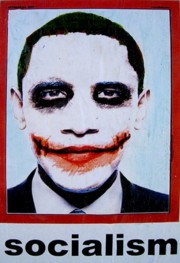The only US newspaper that I regularly read (online) is the Wall Street Journal. It leaves other US newspapers for dead in my opinion and its large circulation shows that I am not alone in that opinion. The publishers of it (Dow Jones) would appear, however, to have become rather puffed up with their success. They published an appalling attack on Joe Gutnick (a devout Australian-Jewish mining entrepreneur and well-known friend of Israel) describing him as "a schemer given to stock scams, money laundering and fraud" -- a remarkably gross and intemperate accusation -- and appear to have made no subsequent effort at retraction. Given his community position, Mr Gutnick of course sued and has just won the first round against Dow Jones in the Australian courts. The Australian High Court ruled that it had jurisdiction and the case will now be heard under Australian libel law -- which is less permissive than libel law in US jurisdictions.
So I do rather hope that Dow Jones end up getting it in the neck over this one. Any rational and decent chief executive would long ago have decided to cut his losses and make a full apology. But big media just hate backing down, of course, and you have to have a deep pocket to make them. So I think Mr Gutnick has done us all a favour if he helps puncture some of that arrogance.
The "Opinion Journal" tentacle of Dow Jones indexes its article on the subject (on December 11th) with the words: "Free speech on the Internet? Not if an Aussie judge has his way". and in the body of the article concerned says:
U.S. libel law, consistent with the speech protections afforded by the First Amendment, makes it fairly difficult to win a libel suit. The burden of proof is on the plaintiff to show the allegedly defamatory statement is false; the statement must be the result of negligence in the case of a private figure, willful falsehood in the case of a public one. That's one reason so many Web sites advocating change in repressive regimes are located in the U.S.
In Britain and the Commonwealth countries, the reverse holds. It is up to the defendant to prove a statement is true, without reference to fault or intent. This Draconian standard has been used in recent years to shutter political publications
But this is just hiding behind free speech. Thankfully all legal systems have limits on slander and it certainly seems to me that newspapers should be restricted to making true statements.
Captain Clueless, that well-known Democrat voter and supporter of affirmative action, has opined that any judgment obtained would not be enforceable in US courts. I am no more of a lawyer than the good Captain is, but it seems to me not remotely likely that Dow Jones would have spent hundreds of thousands of dollars in defending the case so far if that were so.
***********************
|
 It's the shared hatred of the rest of us that unites Islamists and the Left.
It's the shared hatred of the rest of us that unites Islamists and the Left.


No comments:
Post a Comment